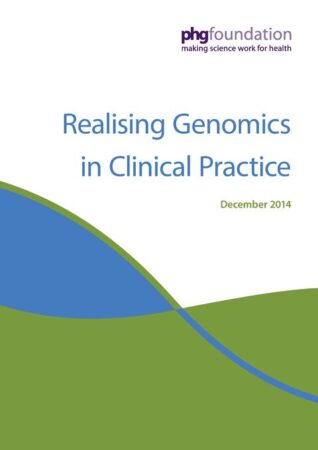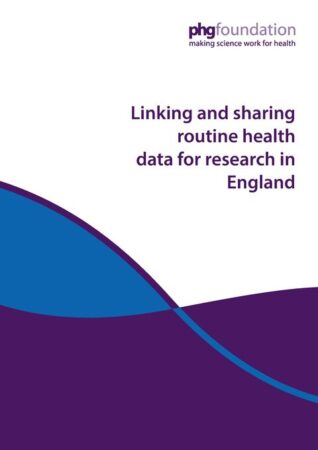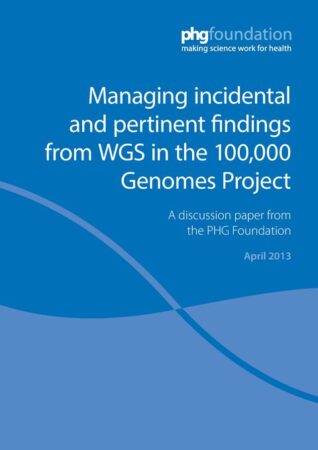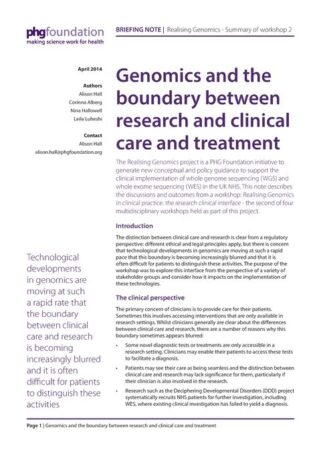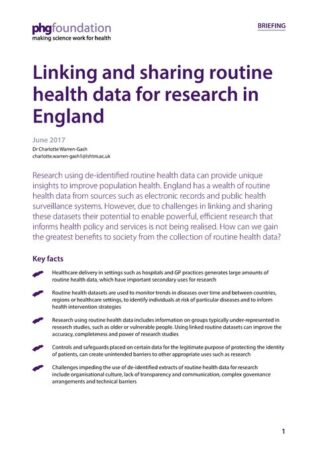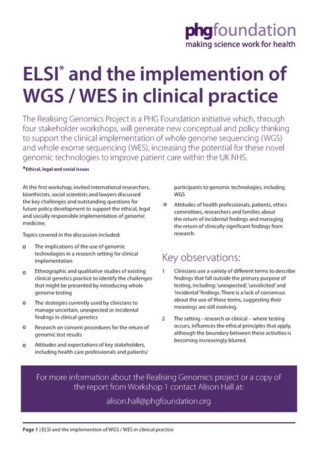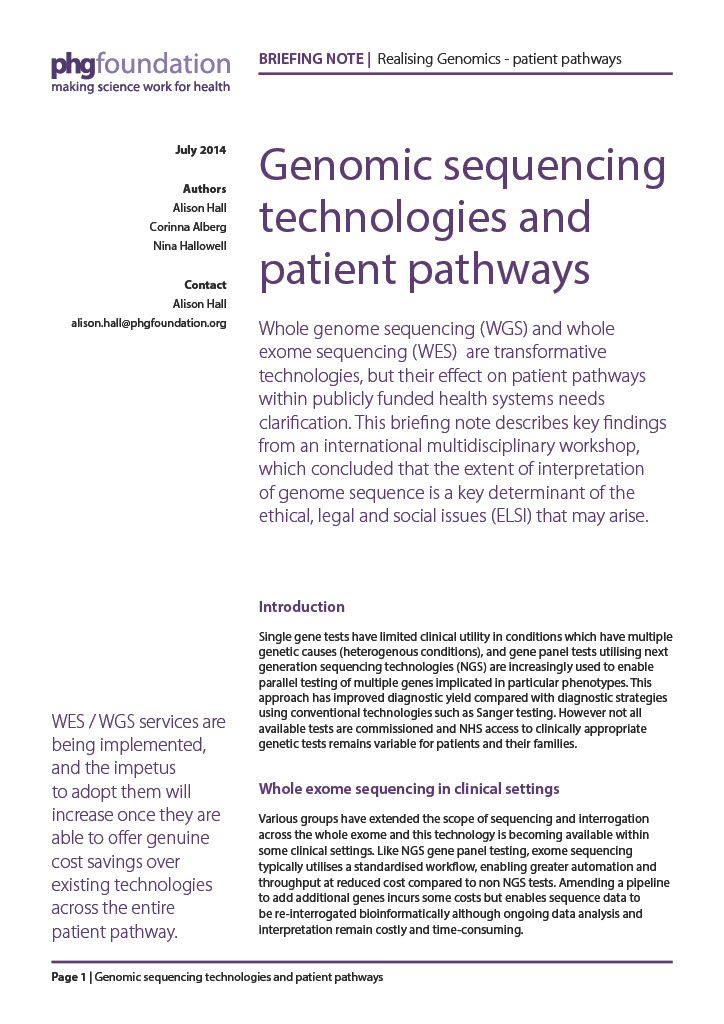Home Publications Reports Realising genomics in clinical practice
Realising genomics in clinical practice
Informing the ethical clinical implementation of genomic technologies
Fast paced development and declining costs of genomic sequencing technologies mean that the NHS is introducing new genomic sequencing diagnostic tests, including expanded next generation sequencing (NGS) gene panels, whole exome sequencing (WES) and ultimately, whole genome sequencing (WGS). Together, these applications have the potential to revolutionise the diagnosis and treatment of many diseases, particularly inherited diseases and cancers.
It is clear that genomics will play a very important role in the future of healthcare, underlined by major UK and international initiatives in genome sequencing and health. The Realising Genomics report is very timely because we need careful thought on how we take things forward in order to make the most of the opportunities and benefits for patients.
The Realising Genomics report is intended to inform the ethical clinical implementation of these genomic technologies. The report draws on research and the views of stakeholders who participated in five expert workshops and identifies the broad range of ethical, legal, social and practical issues that will arise from using NGS technologies. It addresses these challenges by proposing a comprehensive set of recommendations for implementing these technologies in ways that improve healthcare while minimising potential harms, falling into five key areas of ethical practice:
- Rationale and mechanism for targeting genomic analysis
- Ways in which patient consent processes should be enhanced
- Strengthening the scientific and clinical evidence base
- Increasing the effectiveness of data sharing and reporting
- Wider contextual issues including requirements for education, cost-effectiveness analysis and commissioning mechanisms
By Alison Hall, Tom Finnegan, Corinna Alberg
As genomic medicine was emerging as a feasible approach in healthcare, we published briefings and reports in which we focused on the ethical, legal and societal issues that were begining to become apparent. Between 2013 and 2107 we considered the implications of incidental findings that could arise from the 100,000 Genomes Project and the ethics of using data generated in clinical care (of an individual) in research aimed at populations.
The generation, storage, sharing and use of genomic data continies to raise complex questions and we continue our work to find practical answers that respect the individual patient, whilst delivering fair access to good healthcare for all.

